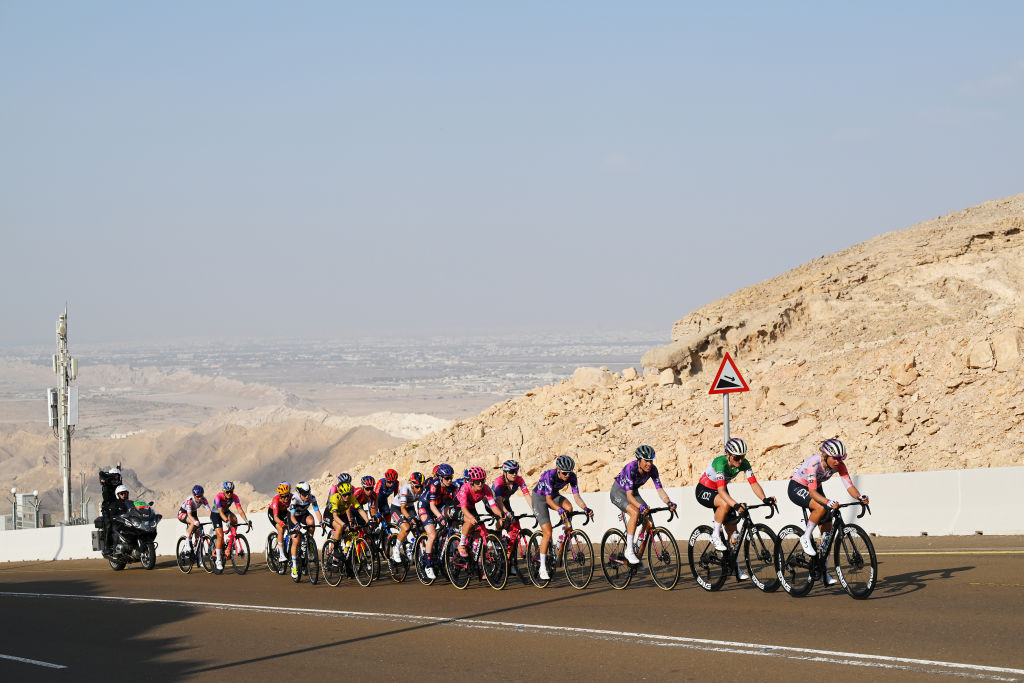Garate: Riders should police themselves
Rabobank veteran believes internal vigilance can help fight doping
The latest race content, interviews, features, reviews and expert buying guides, direct to your inbox!
You are now subscribed
Your newsletter sign-up was successful
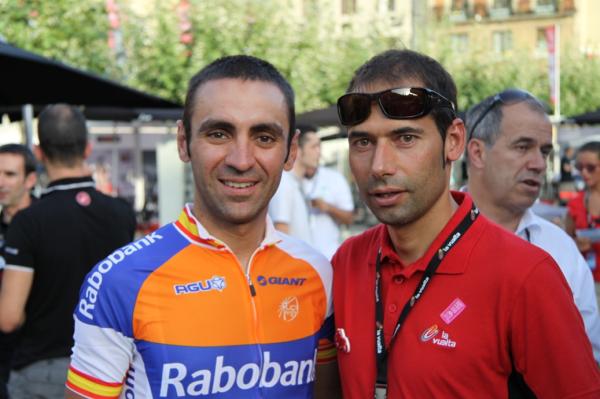
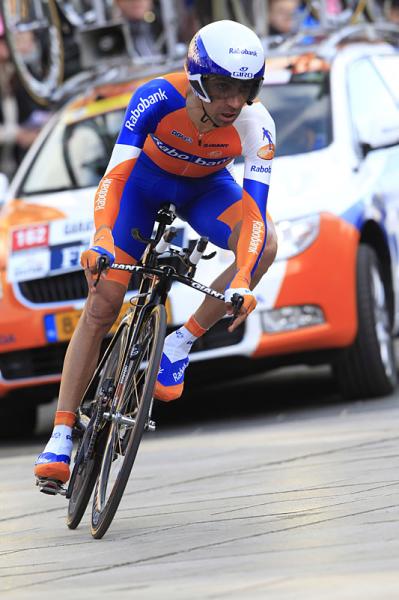
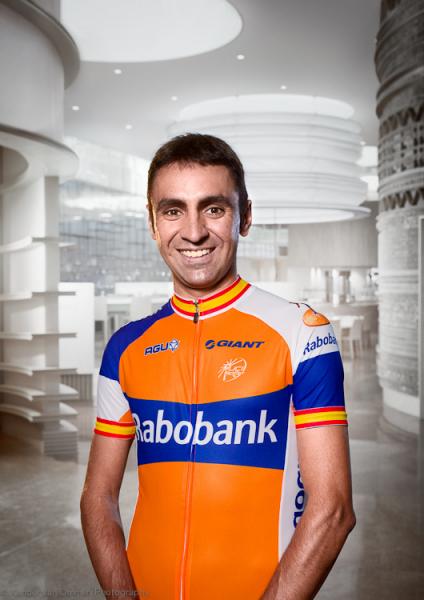
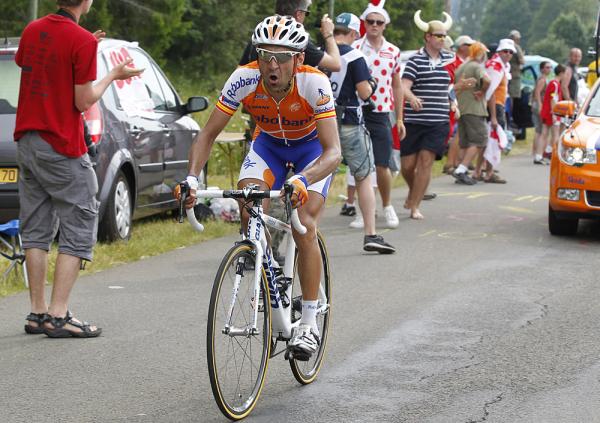
Spanish rider Juan Manuel Garate (Rabobank) believes riders should watch for any signs of rule-breaking - i.e. doping - by their colleagues within a team rather than leave the UCI or WADA to enforce anti-doping legislation. Garate believes self-regulation can help eradicate doping.
“If a team is united, then senior riders can have a role to play in ensuring a team races correctly. Working together we can do that, and watch out for signs that things may not be going in the right direction,” the 36-year-old from the Basque Country told Cyclingnews.
Garate, a top domestique and stage winner in all three Grand Tours in a career stretching back to 2000, said that the Rabobank riders were in constant communication with each other, after the bank announced it was ending its sponsorship.
He also called for current team manager Harald Knebel – who is reported to be leaving after an agreement is made with a new sponsor - should stay on indefinitely in the top post.
“It was Rabobank who put him there but I believe he’s a good man for the job and it would be much better for the riders, and better for the team’s continuity and image if he remained,” Garate told Cyclingnews.
“Changes in the management were already in place before Rabobank said they were quitting. [Team manager Erik] Breukink had gone, [long-standing sports director] Adri Van Houwelingen left at the end of the season. The team was evolving and it can continue to evolve.”
Zero tolerance
The latest race content, interviews, features, reviews and expert buying guides, direct to your inbox!
Speaking in an interview in the Basque daily Gara, Garate added that “we have to deal with the past, but this team has been working well for years. People who have been in cycling for the last ten years know what there was before and what there is now.”
Garate also questioned Team Sky's zero-tolerance policy and their decision to part ways with directeur sportif Sean Yates and Steven De Jongh.
“It strikes me as curious that [sports director Steve] De Jongh [who admitted using banned drugs during his career and left Sky as part of their anti-doping policy) quits Sky when he was one of those who could have contributed the most,” Garate said.
“We live in a hypocritical world, not wanting to accept where we’re coming from and that it can’t be wiped out.”
“Rather than a kid of 20 years old who has come up through the ranks and doesn’t know anything, the ones who can better resolve the situation are the riders and directors who’ve been through the tough times and we know what shouldn’t be done."
"We’re the ones who have to move things forward...take control and make them see that before things were done one way but for some years now they have been different. We have to regain credibility.”
Garate told Cyclingnews that he remains optimistic about the future of the Rabobank team and hopes a new-long term sponsor will invest in the team.
“The team’s structure itself remains in place, and that’s really good. We’re able to look towards the future and what we can do in 2013,” he said.
Financial support from Rabobank is reported to be continuing for at least another 12 months, which Garate told Gara “means this is a situation for opportunists, because for only a little money they can get their names on the jersey.”
“But we don’t want that, rather a guarantee for three years so we can continue in the same direction that the team already had.”
Support for Barredo
Talking later to Cyclingnews on Tuesday, Garate defended fellow-Spaniard and teammate Carlos Barredo, currently suspended from Rabobank and pending a disciplinary hearing from the Spanish Cycling Federation on the basis of information provided by his biological passport blood profile.
"Whilst I can't guarantee anything, I have to trust him because I have never seen anything to make me doubt the contrary," he told cyclingnews.com
"I have, in the past, had team-mates whom I've had doubts about, and finally I've been right. But I've never seen Barredo do anything wrong."
"I think I know him better than whatever the [physiological] parameters of [used by] the UCI say."
"In fact, I would say he's the kind of person that any trainer could use as an example. He's methodical, almost too methodical. He's somebody with a great deal of self-discipline."
Garate says that in the past he has had no qualms in reporting suspicious behaviour to team management, but that this was never the case with Barredo.
"When I talk about forming a group [to eliminate malpractice] within the team, it's for when you see incorrect behaviour, and in the case of Barredo, nobody saw anything. He never gave any cause for suspicion. When the first questions were raised about him [when the UCI's Index of Suspicion in May 2011 and Barredo was one of two riders getting 10 out of 10 points as the most worthy of additional investigation], it was seen as inexplicable."
"And although I still trust him, for better or for worse, I just hope this situation [of a disciplinary hearing] comes to a speedy end, so the guy can get some sort of peace of mind."
The Rabobank riders and staff will gather for their first training camp as usual in the Canary Islands in December.
Alasdair Fotheringham has been reporting on cycling since 1991. He has covered every Tour de France since 1992 bar one, as well as numerous other bike races of all shapes and sizes, ranging from the Olympic Games in 2008 to the now sadly defunct Subida a Urkiola hill climb in Spain. As well as working for Cyclingnews, he has also written for The Independent, The Guardian, ProCycling, The Express and Reuters.

